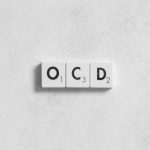
Stephanie Loukieh summarises the COMPASS trial, which presents promising results for digitally delivered CBT for depression and anxiety related to living with a long-term physical health condition.
[read the full story...]
Stephanie Loukieh summarises the COMPASS trial, which presents promising results for digitally delivered CBT for depression and anxiety related to living with a long-term physical health condition.
[read the full story...]
Today Ruby Jarvis presents two new reviews from the Mental Health Policy Research Unit, which summarise the adjustments that clinicians can make to improve mental health care for autistic children, young people and adults.
[read the full story...]
Nick Donnelly discusses how one’s genetic predisposition to shorter sleep is associated with the onset of depression in older adults.
[read the full story...]
Matthias Schwannauer explores the BESST cluster randomised controlled trial, which is out today in The Lancet Psychiatry. BESST stands for Brief Educational Workshops in Secondary Schools Trial.
[read the full story...]
Andrea Cipriani is back, this time writing with Rosario Aronica to summarise an individual patient data meta-analysis on the use of psychological interventions for preventing relapse in depression.
[read the full story...]
In her debut blog, Rena Gatzounis summarises a study that investigated the mechanisms of threat expectancy, occurrence, and change in relation to exposure therapy for anxiety disorders.
[read the full story...]
Chris Sampson evaluates a cost-of-illness analysis on the economic burden of Obsessive Compulsive Disorder in the UK.
[read the full story...]
In her debut blog, Ellie Davis takes a look at a recent scoping review on psychological interventions and outcomes for avoidant and restrictive food intake disorder (ARFID).
[read the full story...]
Becky Appleton summarises a randomised controlled trial investigating the effectiveness and acceptability of text-based Cognitive Behavioural Therapy for improving depression in young adults.
[read the full story...]
Hannah Wallace summarises a network meta-analysis comparing four different formats of CBT for panic disorder, which finds “no efficacy differences between CBT delivered as guided self-help, or in the face-to-face individual or group format in the treatment of panic disorder”.
[read the full story...]